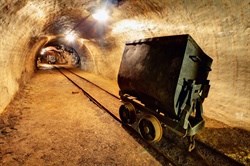Conflicting rights to exploit natural resources

The reason for the aforesaid contention is the following:
- the MPRDA in respect of mineral rights currently provides that the Regional Manager must accept an application for a prospecting or mining right, as the case may be, by any person who wishes to apply therefor to the Minister, if inter alia "no other person holds a prospecting right, mining right, mining permit or retention permit for the same mineral and land."
- similarly the MPRDA provides in respect of petroleum rights that the designated agency (which will now be replaced with the Regional Manager) must accept an application for an exploration or production right, as the case may be, if inter alia "no other person holds a technical co-operation permit, exploration right or production right for petroleum over any part of the area."
- The proposed amendments to the MPRDA does not empower the Regional Manager to reject or not to accept an application for a prospecting or mining right, as the case may be, should someone else already hold a technical co-operation permit, exploration right or production right for petroleum over the same land or area, vice versa.
There might be some practical manner where both a mining right and a production right over the same land could be exercised jointly, but independently without any effect or minimal effect on the resources of the other by restricting the respective rights to certain seams, mineralised bodies or stratum (if at all possible; taking into account that petroleum in most instance constitutes a liquefied hydrocarbon). However in most instances the restriction of the mining right or production right to certain seams, mineralised bodies or stratum may be impossible.
Practical and administrative difficulties
An example of a potential conflict is where one person lodged an application for the exploration of coal-bed methane gas over an area of land where another person lodged an application for the prospecting of coal. The grant of both minerals and petroleum rights over the same land may result in serious practical and administrative difficulties, as it is not possible to conduct both the mining of coal and the production of coal-bed methane gas independently, the one activity will adversely impact the other. The mining of the coal can cause destruction of the methane in that the methane is liberated and dissipated. Conversely, the mining of methane can result in damage to the coal in that it causes fragmentation of the coal, rendering it of limited use.
In order to avoid potential overlapping applications in respect of mineral and petroleum rights, specifically in light of the South African government's initiative to ascertain whether it is commercially and environmentally feasible to exploit shale gas in the Great Karoo Basis, an amendment of section 16(2) and section 22(2) of Chapter 4 (mineral rights) of the MPRDA and section 79(2) and section 83(2) of Chapter 6 (petroleum rights) of the MPRDA should be considered.
Conflicting provisions
The MPRDA does not provided the Minister with a discretion to refuse an application for either a mining right or production right, as the case may be. The Minister is obliged to grant such right subject to compliance with the prescribed requirements by the applicant. The new proposed application process for rights may eliminate this, but it is not clear from the text of the MPRDA or proposed amendments thereto. It is important for the government to ensure that the regulatory framework does not have the opposite intention by restricting the exploitation of potential gas reserves due to practical and administrative difficulties as a result of conflicting provisions.
About Jackwell Feris
View my profile and articles...